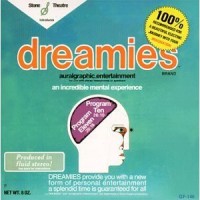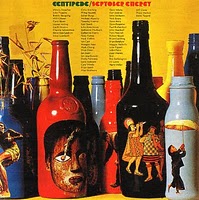Discovering library music is a fascinating thing. This is music that was initially created for commercial purposes (created to be sold or licensed to film, television or radio). Library production music can be the most liberating, genre-bending musical experience, due to its lack of constraints on creativity. It varies from straight orchestral fare, bossa nova pop, quirky electro, disco, demented and moody electro-acoustics, folk, and everything else in between.
There were numerous labels of all shapes and sizes, mostly from France, Italy, Germany and the UK (L’illustration Musicale, de Wolfe, Telemusic, KPM, Selected Sound, Musique Pour l’Image, and Bruton being among some of the larger, more reknown labels), some with wide distribution, and others relegated to obscure status almost immediately. Composers would knock out several albums a month, often for different labels, and even more common, under a different name – leading to very difficult research, and a very tricky time for anyone trying to figure out any sort of discography trajectory. Some examples of aliases include the ever prolific Piero Umiliani, who also traded under Zalla, Moggi, Herbana, The Braen’s Machine (with Alessandro Alessandroni), and a few others. Nino Nardini was another big composer, getting his start in the 40’s as a big band jazz leader, soon becoming one of the towering figures in all of library music, often under his Georges Teperino guise. His friend and recurring musical partner Roger Roger typically issued zany electronics under the name Cecil Leuter. This story is typical among the legions of composers.
I feel the high point of library music vitality was from roughly 1968-1982, though the amount of decent 80’s libraries is scarce. Further into the 80’s the music got increasingly tacky, especially on the British labels Bruton, de Wolfe and KPM, mixing rock elements with fusion and disco, resulting in many failed ideas that neverless ended up gracing many television programs and radio themes.
These are pretty broad statements meant to clue some folks in to library music as a whole, though on the fringes there were numerous small labels who only issued a few albums, and even still, some labels are only noteworthy through rumor, having become so scarce as to not being tracked down at all. Many of these labels produced some very challenging and often avant garde music, some venturing more into the modern interpretive dance music, and less a commercial venture. I’m sure there are so many thousands of stories hidden within those recording studios, television and radio stations, etc… with hundreds of faceless, seemingly selfless composers pushing out the goods to little or no fanfare. Some of these composers were relatively famous through other means and did libraries for a little extra cash (many tracks did in fact became famous themes for TV, radio and film). For some of these composers, it was their sole creative and financial venture, but it’s safe to say that now for many younger people who’ve discovered them anew, they are like rock stars.
Much of this music is a goldmine for sample hungry beatheads looking for “breakz.” I tend to approach it differently. Sure, I love a good solid groover, but I also look for something more cerebral, conceptual, or just plain different, to go deeper than just funky instrumental music.
Picking just several favorites was a difficult task. The ten titles below were chosen to showcase a variety of composers, labels and styles. A quick Google search of a composer or favorite title will quickly put you on your own path of discovery.
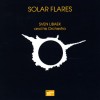 1. Sven Libaek Solar Flares (Peer/UK, 1974). One of my favorites! A very solid collection of groovy orchestral pop, but with that Libek twist: lots of dreamy vibes, clever, hooky arrangements, subtle wah-guitar, sneaky Moog, strong brass work, etc… Many fantastic tunes here, with a slight futuristic bent, but more in line with hazy summer days circa 1975.
1. Sven Libaek Solar Flares (Peer/UK, 1974). One of my favorites! A very solid collection of groovy orchestral pop, but with that Libek twist: lots of dreamy vibes, clever, hooky arrangements, subtle wah-guitar, sneaky Moog, strong brass work, etc… Many fantastic tunes here, with a slight futuristic bent, but more in line with hazy summer days circa 1975.
 2. Oronzo de Filippi Meccanizzazione (Leo/Italy, 1969). A stunning library album featuring a strange mix of Morricone harpsichord phrasings, Jobim esque bossanova lounge, and some shifty Dave Brubeck tempos, with little bits of weird sounds thrown in. All in all it’s very sunny, hypnotic stuff. Deserves to be recognized as a solid latin jazz album. There’s a strong resemblance to Dots… era Stereolab in parts, regarding the jazzy latin rhythms and instrumentation.
2. Oronzo de Filippi Meccanizzazione (Leo/Italy, 1969). A stunning library album featuring a strange mix of Morricone harpsichord phrasings, Jobim esque bossanova lounge, and some shifty Dave Brubeck tempos, with little bits of weird sounds thrown in. All in all it’s very sunny, hypnotic stuff. Deserves to be recognized as a solid latin jazz album. There’s a strong resemblance to Dots… era Stereolab in parts, regarding the jazzy latin rhythms and instrumentation.
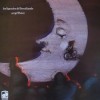 3. Serge Bulot Les légendes de Brocéliande (Sonimage/France, 1981). Moody and atmospheric, this is a very strong album – veering from ambient synth and folksy acoustic guitars to subtle violin arrangements; all set against a dreamy, swirling early 80’s post-punk haze that’s actually quite effective, recalling at once a sort of Factory records Durutti Column/Virginia Ashley type collaboration with some very slight ambient prog tendencies from the late 70’s. Bulot is a noted multi-instrumentalist with a vast, impressive collection of worldly instruments. From the looks of his myspace page he’s currently quite active composing and performing.
3. Serge Bulot Les légendes de Brocéliande (Sonimage/France, 1981). Moody and atmospheric, this is a very strong album – veering from ambient synth and folksy acoustic guitars to subtle violin arrangements; all set against a dreamy, swirling early 80’s post-punk haze that’s actually quite effective, recalling at once a sort of Factory records Durutti Column/Virginia Ashley type collaboration with some very slight ambient prog tendencies from the late 70’s. Bulot is a noted multi-instrumentalist with a vast, impressive collection of worldly instruments. From the looks of his myspace page he’s currently quite active composing and performing.
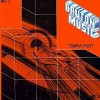 4. Francis Monkman Tempus Fugit (Bruton/UK, 1978). Phonkay space age fuzak! Here the keyboard wiz tears through stellar fantasy lifestyle music, with the terse focus of a falcon and the cheese merchant chops of Rick Wakeman’s little brother (?). Of course, this was on the British late 70’s standard jazz disco funk label Bruton. Here you’ll find plenty of Rhodes massaging, synth-swell galore, and hard clavinet stomping mood pieces that do little to deter your image of spacemen in tight red leather pants, headbands and elbow length white gloves. Run (don’t walk) away slowly.
4. Francis Monkman Tempus Fugit (Bruton/UK, 1978). Phonkay space age fuzak! Here the keyboard wiz tears through stellar fantasy lifestyle music, with the terse focus of a falcon and the cheese merchant chops of Rick Wakeman’s little brother (?). Of course, this was on the British late 70’s standard jazz disco funk label Bruton. Here you’ll find plenty of Rhodes massaging, synth-swell galore, and hard clavinet stomping mood pieces that do little to deter your image of spacemen in tight red leather pants, headbands and elbow length white gloves. Run (don’t walk) away slowly.
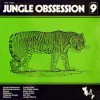 5. Nino Nardini & Roger Roger Jungle Obsession (Neuilly/France, 1972). Classic moogxotica, though the electronic element is very minimal. This album is a little over-hyped in my opinion, but it’s still a very solid effort. There’s absolutely no weirdo synth filler here (good news for all those weird synth album haters), but elegantly composed lounge jazz with a heavy exotic vibe, befitting the title, and some requisite animal sounds chirping and roaring here and there.
5. Nino Nardini & Roger Roger Jungle Obsession (Neuilly/France, 1972). Classic moogxotica, though the electronic element is very minimal. This album is a little over-hyped in my opinion, but it’s still a very solid effort. There’s absolutely no weirdo synth filler here (good news for all those weird synth album haters), but elegantly composed lounge jazz with a heavy exotic vibe, befitting the title, and some requisite animal sounds chirping and roaring here and there.
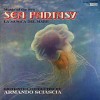 6. Armando Sciascia Sea Fantasy (Vedette/Italy, 1972). A stunning, fully formed album of sea themes from symphonic to light jazz. Beautiful orchestration, use of experimental electronics, and most of all there’s an elegant haze over everything.
6. Armando Sciascia Sea Fantasy (Vedette/Italy, 1972). A stunning, fully formed album of sea themes from symphonic to light jazz. Beautiful orchestration, use of experimental electronics, and most of all there’s an elegant haze over everything.
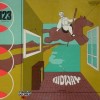 7. Jacques Siroul Midway (Montparnasse 2000/France, 1975) A damn good batch of Morricone-esque groovy instrumental pop, with a little Andre Popp and Serge Gainsbourg tossed in. The rhythm section is beefy and flawless, giving the whole “lounge” factor a total makeover. The harmonica (which I typically don’t care for) makes very frequent appearances on this album, though it is in a melancholic “Midnight Cowboy” vein, and not an annoying bluesy-folk one. There are a couple of corny piano pop concertos, but the zig zag moog and top notch compositions make this one very solid and unique overall. I like to call it “elevator prog”. Yes, I just made that up. This has reissue written all over it, from the crowd-pleasing heavy beats to the smart arrangements and generally great tunes. It’s quickly become one of my favorite albums!
7. Jacques Siroul Midway (Montparnasse 2000/France, 1975) A damn good batch of Morricone-esque groovy instrumental pop, with a little Andre Popp and Serge Gainsbourg tossed in. The rhythm section is beefy and flawless, giving the whole “lounge” factor a total makeover. The harmonica (which I typically don’t care for) makes very frequent appearances on this album, though it is in a melancholic “Midnight Cowboy” vein, and not an annoying bluesy-folk one. There are a couple of corny piano pop concertos, but the zig zag moog and top notch compositions make this one very solid and unique overall. I like to call it “elevator prog”. Yes, I just made that up. This has reissue written all over it, from the crowd-pleasing heavy beats to the smart arrangements and generally great tunes. It’s quickly become one of my favorite albums!
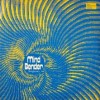 8. Stringtronics Mindbender (Peer-Southern/UK, 1972). This is something of a showcase effort from Barry Forgie, Anthony Mawer, Nino Nardini, and Roger Roger, each displaying their own brand of baroque jazz, with the emphasis on furiously sawed strings. [The first half of Mindbender is a 6-track suite composed by UK library legend Barry Forgie. Recorded in one 3-hour session, it’s a unique psych/funk/baroque exploration that’s made this LP the holy grail of library music collectors for years.]
8. Stringtronics Mindbender (Peer-Southern/UK, 1972). This is something of a showcase effort from Barry Forgie, Anthony Mawer, Nino Nardini, and Roger Roger, each displaying their own brand of baroque jazz, with the emphasis on furiously sawed strings. [The first half of Mindbender is a 6-track suite composed by UK library legend Barry Forgie. Recorded in one 3-hour session, it’s a unique psych/funk/baroque exploration that’s made this LP the holy grail of library music collectors for years.]
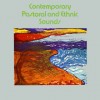 9. Joel Vandroogenbroeck Contemporary Pastoral and Ethnic Sounds (Coloursound/Germany, 1980) Ah, what a beaut’! Joel Vandroogenbroeck (aka: VDB Joel) was the main, only consistent member in Brainticket, and on this album he blends the requisite flute with synths and exotica tinged percussion, and comes up with a winner, an almost pop/mainstream approximation of the exotica-library variety. Surely this era of his work is probably lumped in with the new-age crowd (if it is lumped in anywhere at all!), but don’t let such things deter you from a wonderful listen. Majestic peaks of sound wash around, with an Echoplexed flute zipping all over the spectrum. I’m reminded of some long lost Herzog film, as the pastoral post-hippie vibe here bodes well with mid-period Popol Vuh, though in a slightly more synthetic way. There’s even a funky track with sample worthy “breaks” and some nasty clavinet; a seemingly out-of-place track, but it works well. For the most part, Vandroogenbroeck brings an old school krautrock/prog sensibility to the proceedings. Highly recommended!
9. Joel Vandroogenbroeck Contemporary Pastoral and Ethnic Sounds (Coloursound/Germany, 1980) Ah, what a beaut’! Joel Vandroogenbroeck (aka: VDB Joel) was the main, only consistent member in Brainticket, and on this album he blends the requisite flute with synths and exotica tinged percussion, and comes up with a winner, an almost pop/mainstream approximation of the exotica-library variety. Surely this era of his work is probably lumped in with the new-age crowd (if it is lumped in anywhere at all!), but don’t let such things deter you from a wonderful listen. Majestic peaks of sound wash around, with an Echoplexed flute zipping all over the spectrum. I’m reminded of some long lost Herzog film, as the pastoral post-hippie vibe here bodes well with mid-period Popol Vuh, though in a slightly more synthetic way. There’s even a funky track with sample worthy “breaks” and some nasty clavinet; a seemingly out-of-place track, but it works well. For the most part, Vandroogenbroeck brings an old school krautrock/prog sensibility to the proceedings. Highly recommended!
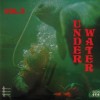 10. Various Artists Under Water Vol. 2: Under and Over the Water Surface (Sonoton/Germany, 1978). Absolutely stunning! This is a top notch collection of spooky yet elegant jazz played with beautiful unease. The woodwinds soar alongside the harps, plucky bass, water logged tubas and trombones, and the brief synth vignettes all add up to a great flow. Fans of moody modal jazz would find much to love here. It’s not too out-there like many conceptual libraries, and is a wonderful, darker cousin to Sven Libaek’s stellar Ron & Val Taylor’s Inner Space, though perhaps a bit more cerebral. It fits into the underwater-as-outer space metaphor quite well – both dark places of mysterious power, stifling vulnerability, and utter loneliness. Standout album track for me is “Wet Suit”. Side one is the mostly jazz section, composed by the duo of Sam Sklair and Oscar Sieben (with one short track by J. Fox & M. Prindy), while side two consists of moody electronic ambience courtesy of Mladen Franko. Very highly recommended!
10. Various Artists Under Water Vol. 2: Under and Over the Water Surface (Sonoton/Germany, 1978). Absolutely stunning! This is a top notch collection of spooky yet elegant jazz played with beautiful unease. The woodwinds soar alongside the harps, plucky bass, water logged tubas and trombones, and the brief synth vignettes all add up to a great flow. Fans of moody modal jazz would find much to love here. It’s not too out-there like many conceptual libraries, and is a wonderful, darker cousin to Sven Libaek’s stellar Ron & Val Taylor’s Inner Space, though perhaps a bit more cerebral. It fits into the underwater-as-outer space metaphor quite well – both dark places of mysterious power, stifling vulnerability, and utter loneliness. Standout album track for me is “Wet Suit”. Side one is the mostly jazz section, composed by the duo of Sam Sklair and Oscar Sieben (with one short track by J. Fox & M. Prindy), while side two consists of moody electronic ambience courtesy of Mladen Franko. Very highly recommended!
For further listening: A few more of my favorites worth tracking down are Walt Rockman’s space-age fairy-tale lullaby, Biology (Sonoton/Germany, 1978), Simon Park’s prog-ish Electric Bird (de Wolfe/UK, 1974), Romolo Grano’s Musica elettronica 1 (Joker/Italy, 1973) featuring superb, scary ambience and bleep-bloop blast, the disturbingly dark Egisto Macchi Voix (Gemelli/Italy, 1970), and the certified classic Cops, Crooks and Spies featuring some moody crime jazz cues by Eddie Warner.
View my complete list of over 350 library records here. —Norm
Do you have a favorite Sound Library composer or title? Share them in the comments field below:
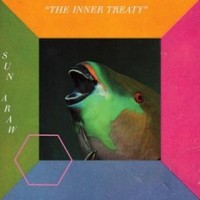


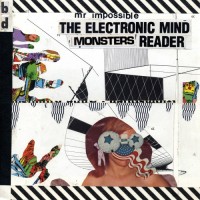
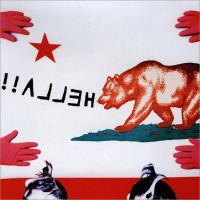
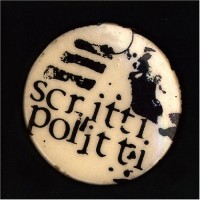
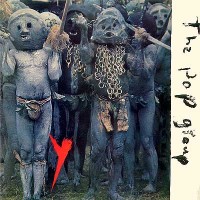
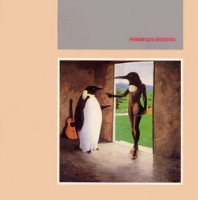
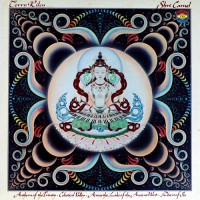
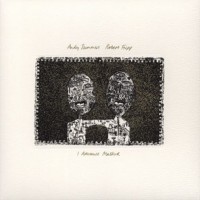
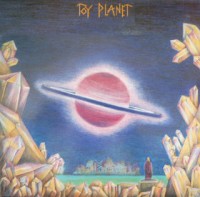
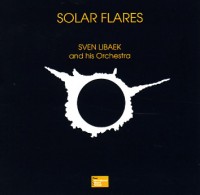
 1. Sven Libaek Solar Flares (Peer/UK, 1974). One of my favorites! A very solid collection of groovy orchestral pop, but with that Libek twist: lots of dreamy vibes, clever, hooky arrangements, subtle wah-guitar, sneaky Moog, strong brass work, etc… Many fantastic tunes here, with a slight futuristic bent, but more in line with hazy summer days circa 1975.
1. Sven Libaek Solar Flares (Peer/UK, 1974). One of my favorites! A very solid collection of groovy orchestral pop, but with that Libek twist: lots of dreamy vibes, clever, hooky arrangements, subtle wah-guitar, sneaky Moog, strong brass work, etc… Many fantastic tunes here, with a slight futuristic bent, but more in line with hazy summer days circa 1975. 2. Oronzo de Filippi Meccanizzazione (Leo/Italy, 1969). A stunning library album featuring a strange mix of Morricone harpsichord phrasings, Jobim esque bossanova lounge, and some shifty Dave Brubeck tempos, with little bits of weird sounds thrown in. All in all it’s very sunny, hypnotic stuff. Deserves to be recognized as a solid latin jazz album. There’s a strong resemblance to Dots… era Stereolab in parts, regarding the jazzy latin rhythms and instrumentation.
2. Oronzo de Filippi Meccanizzazione (Leo/Italy, 1969). A stunning library album featuring a strange mix of Morricone harpsichord phrasings, Jobim esque bossanova lounge, and some shifty Dave Brubeck tempos, with little bits of weird sounds thrown in. All in all it’s very sunny, hypnotic stuff. Deserves to be recognized as a solid latin jazz album. There’s a strong resemblance to Dots… era Stereolab in parts, regarding the jazzy latin rhythms and instrumentation. 3. Serge Bulot Les légendes de Brocéliande (Sonimage/France, 1981). Moody and atmospheric, this is a very strong album – veering from ambient synth and folksy acoustic guitars to subtle violin arrangements; all set against a dreamy, swirling early 80’s post-punk haze that’s actually quite effective, recalling at once a sort of Factory records Durutti Column/Virginia Ashley type collaboration with some very slight ambient prog tendencies from the late 70’s. Bulot is a noted multi-instrumentalist with a vast, impressive collection of worldly instruments. From the looks of his myspace page he’s currently quite active composing and performing.
3. Serge Bulot Les légendes de Brocéliande (Sonimage/France, 1981). Moody and atmospheric, this is a very strong album – veering from ambient synth and folksy acoustic guitars to subtle violin arrangements; all set against a dreamy, swirling early 80’s post-punk haze that’s actually quite effective, recalling at once a sort of Factory records Durutti Column/Virginia Ashley type collaboration with some very slight ambient prog tendencies from the late 70’s. Bulot is a noted multi-instrumentalist with a vast, impressive collection of worldly instruments. From the looks of his myspace page he’s currently quite active composing and performing. 4. Francis Monkman Tempus Fugit (Bruton/UK, 1978). Phonkay space age fuzak! Here the keyboard wiz tears through stellar fantasy lifestyle music, with the terse focus of a falcon and the cheese merchant chops of Rick Wakeman’s little brother (?). Of course, this was on the British late 70’s standard jazz disco funk label Bruton. Here you’ll find plenty of Rhodes massaging, synth-swell galore, and hard clavinet stomping mood pieces that do little to deter your image of spacemen in tight red leather pants, headbands and elbow length white gloves. Run (don’t walk) away slowly.
4. Francis Monkman Tempus Fugit (Bruton/UK, 1978). Phonkay space age fuzak! Here the keyboard wiz tears through stellar fantasy lifestyle music, with the terse focus of a falcon and the cheese merchant chops of Rick Wakeman’s little brother (?). Of course, this was on the British late 70’s standard jazz disco funk label Bruton. Here you’ll find plenty of Rhodes massaging, synth-swell galore, and hard clavinet stomping mood pieces that do little to deter your image of spacemen in tight red leather pants, headbands and elbow length white gloves. Run (don’t walk) away slowly. 5. Nino Nardini & Roger Roger Jungle Obsession (Neuilly/France, 1972). Classic moogxotica, though the electronic element is very minimal. This album is a little over-hyped in my opinion, but it’s still a very solid effort. There’s absolutely no weirdo synth filler here (good news for all those weird synth album haters), but elegantly composed lounge jazz with a heavy exotic vibe, befitting the title, and some requisite animal sounds chirping and roaring here and there.
5. Nino Nardini & Roger Roger Jungle Obsession (Neuilly/France, 1972). Classic moogxotica, though the electronic element is very minimal. This album is a little over-hyped in my opinion, but it’s still a very solid effort. There’s absolutely no weirdo synth filler here (good news for all those weird synth album haters), but elegantly composed lounge jazz with a heavy exotic vibe, befitting the title, and some requisite animal sounds chirping and roaring here and there. 6. Armando Sciascia Sea Fantasy (Vedette/Italy, 1972). A stunning, fully formed album of sea themes from symphonic to light jazz. Beautiful orchestration, use of experimental electronics, and most of all there’s an elegant haze over everything.
6. Armando Sciascia Sea Fantasy (Vedette/Italy, 1972). A stunning, fully formed album of sea themes from symphonic to light jazz. Beautiful orchestration, use of experimental electronics, and most of all there’s an elegant haze over everything. 7. Jacques Siroul Midway (Montparnasse 2000/France, 1975) A damn good batch of Morricone-esque groovy instrumental pop, with a little Andre Popp and Serge Gainsbourg tossed in. The rhythm section is beefy and flawless, giving the whole “lounge” factor a total makeover. The harmonica (which I typically don’t care for) makes very frequent appearances on this album, though it is in a melancholic “Midnight Cowboy” vein, and not an annoying bluesy-folk one. There are a couple of corny piano pop concertos, but the zig zag moog and top notch compositions make this one very solid and unique overall. I like to call it “elevator prog”. Yes, I just made that up. This has reissue written all over it, from the crowd-pleasing heavy beats to the smart arrangements and generally great tunes. It’s quickly become one of my favorite albums!
7. Jacques Siroul Midway (Montparnasse 2000/France, 1975) A damn good batch of Morricone-esque groovy instrumental pop, with a little Andre Popp and Serge Gainsbourg tossed in. The rhythm section is beefy and flawless, giving the whole “lounge” factor a total makeover. The harmonica (which I typically don’t care for) makes very frequent appearances on this album, though it is in a melancholic “Midnight Cowboy” vein, and not an annoying bluesy-folk one. There are a couple of corny piano pop concertos, but the zig zag moog and top notch compositions make this one very solid and unique overall. I like to call it “elevator prog”. Yes, I just made that up. This has reissue written all over it, from the crowd-pleasing heavy beats to the smart arrangements and generally great tunes. It’s quickly become one of my favorite albums! 8. Stringtronics Mindbender (Peer-Southern/UK, 1972). This is something of a showcase effort from Barry Forgie, Anthony Mawer, Nino Nardini, and Roger Roger, each displaying their own brand of baroque jazz, with the emphasis on furiously sawed strings. [The first half of Mindbender is a 6-track suite composed by UK library legend Barry Forgie. Recorded in one 3-hour session, it’s a unique psych/funk/baroque exploration that’s made this LP the holy grail of library music collectors for years.]
8. Stringtronics Mindbender (Peer-Southern/UK, 1972). This is something of a showcase effort from Barry Forgie, Anthony Mawer, Nino Nardini, and Roger Roger, each displaying their own brand of baroque jazz, with the emphasis on furiously sawed strings. [The first half of Mindbender is a 6-track suite composed by UK library legend Barry Forgie. Recorded in one 3-hour session, it’s a unique psych/funk/baroque exploration that’s made this LP the holy grail of library music collectors for years.] 9. Joel Vandroogenbroeck Contemporary Pastoral and Ethnic Sounds (Coloursound/Germany, 1980) Ah, what a beaut’! Joel Vandroogenbroeck (aka: VDB Joel) was the main, only consistent member in Brainticket, and on this album he blends the requisite flute with synths and exotica tinged percussion, and comes up with a winner, an almost pop/mainstream approximation of the exotica-library variety. Surely this era of his work is probably lumped in with the new-age crowd (if it is lumped in anywhere at all!), but don’t let such things deter you from a wonderful listen. Majestic peaks of sound wash around, with an Echoplexed flute zipping all over the spectrum. I’m reminded of some long lost Herzog film, as the pastoral post-hippie vibe here bodes well with mid-period Popol Vuh, though in a slightly more synthetic way. There’s even a funky track with sample worthy “breaks” and some nasty clavinet; a seemingly out-of-place track, but it works well. For the most part, Vandroogenbroeck brings an old school krautrock/prog sensibility to the proceedings. Highly recommended!
9. Joel Vandroogenbroeck Contemporary Pastoral and Ethnic Sounds (Coloursound/Germany, 1980) Ah, what a beaut’! Joel Vandroogenbroeck (aka: VDB Joel) was the main, only consistent member in Brainticket, and on this album he blends the requisite flute with synths and exotica tinged percussion, and comes up with a winner, an almost pop/mainstream approximation of the exotica-library variety. Surely this era of his work is probably lumped in with the new-age crowd (if it is lumped in anywhere at all!), but don’t let such things deter you from a wonderful listen. Majestic peaks of sound wash around, with an Echoplexed flute zipping all over the spectrum. I’m reminded of some long lost Herzog film, as the pastoral post-hippie vibe here bodes well with mid-period Popol Vuh, though in a slightly more synthetic way. There’s even a funky track with sample worthy “breaks” and some nasty clavinet; a seemingly out-of-place track, but it works well. For the most part, Vandroogenbroeck brings an old school krautrock/prog sensibility to the proceedings. Highly recommended! 10. Various Artists Under Water Vol. 2: Under and Over the Water Surface (Sonoton/Germany, 1978). Absolutely stunning! This is a top notch collection of spooky yet elegant jazz played with beautiful unease. The woodwinds soar alongside the harps, plucky bass, water logged tubas and trombones, and the brief synth vignettes all add up to a great flow. Fans of moody modal jazz would find much to love here. It’s not too out-there like many conceptual libraries, and is a wonderful, darker cousin to Sven Libaek’s stellar Ron & Val Taylor’s Inner Space, though perhaps a bit more cerebral. It fits into the underwater-as-outer space metaphor quite well – both dark places of mysterious power, stifling vulnerability, and utter loneliness. Standout album track for me is “Wet Suit”. Side one is the mostly jazz section, composed by the duo of Sam Sklair and Oscar Sieben (with one short track by J. Fox & M. Prindy), while side two consists of moody electronic ambience courtesy of Mladen Franko. Very highly recommended!
10. Various Artists Under Water Vol. 2: Under and Over the Water Surface (Sonoton/Germany, 1978). Absolutely stunning! This is a top notch collection of spooky yet elegant jazz played with beautiful unease. The woodwinds soar alongside the harps, plucky bass, water logged tubas and trombones, and the brief synth vignettes all add up to a great flow. Fans of moody modal jazz would find much to love here. It’s not too out-there like many conceptual libraries, and is a wonderful, darker cousin to Sven Libaek’s stellar Ron & Val Taylor’s Inner Space, though perhaps a bit more cerebral. It fits into the underwater-as-outer space metaphor quite well – both dark places of mysterious power, stifling vulnerability, and utter loneliness. Standout album track for me is “Wet Suit”. Side one is the mostly jazz section, composed by the duo of Sam Sklair and Oscar Sieben (with one short track by J. Fox & M. Prindy), while side two consists of moody electronic ambience courtesy of Mladen Franko. Very highly recommended!